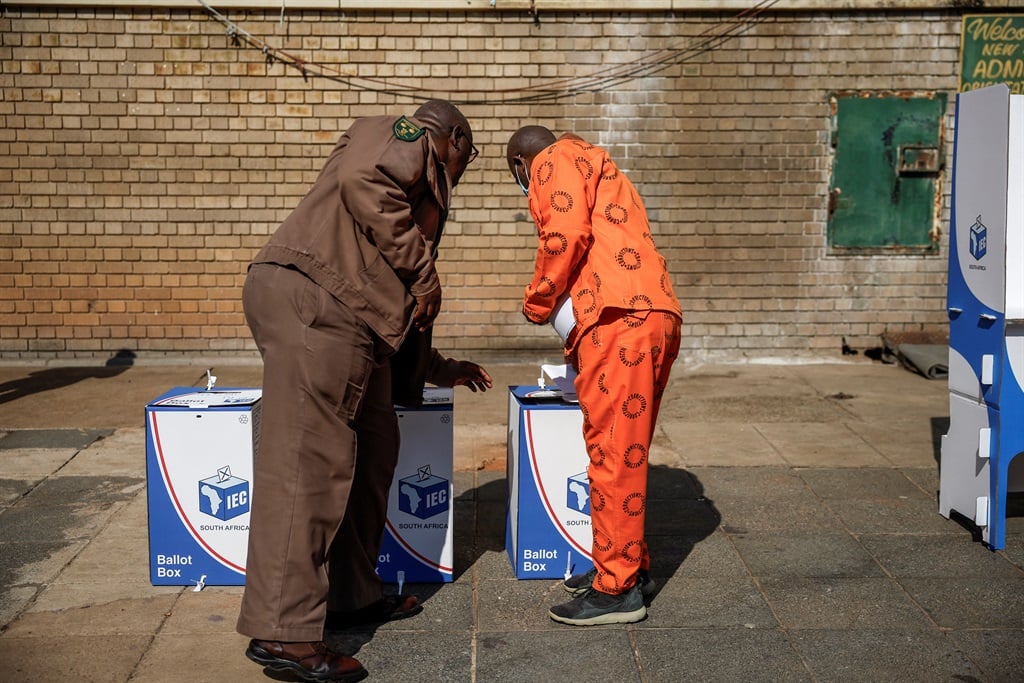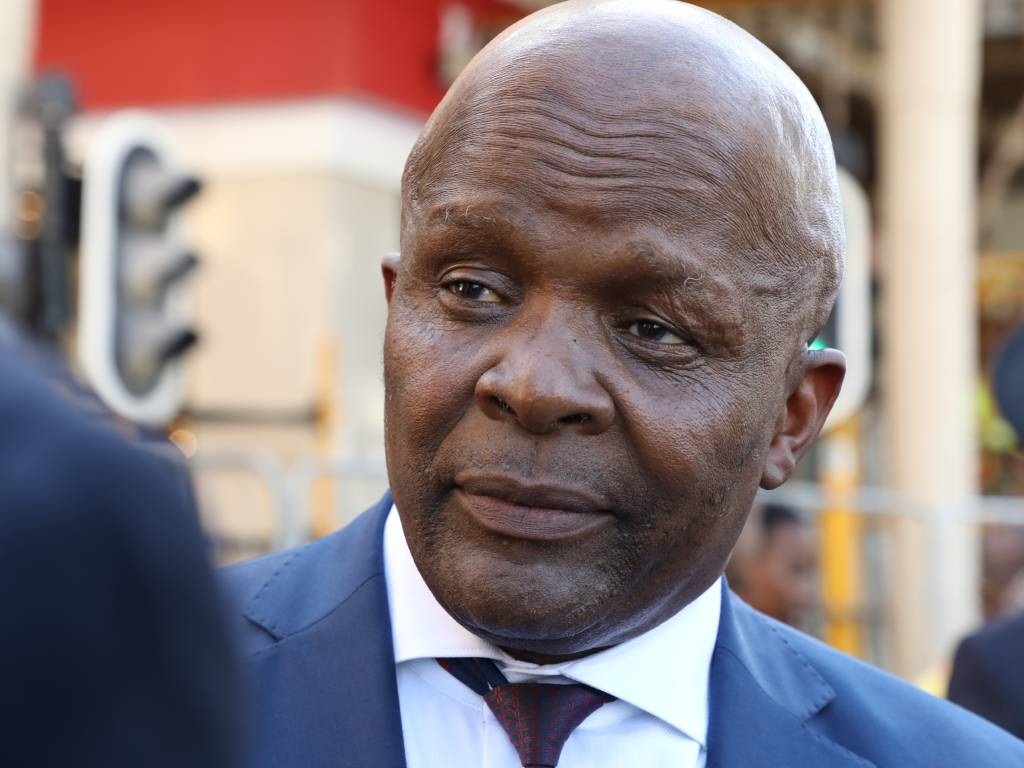
A Correctional Services officer assists an inmate to cast his ballot at the Kgosi Mampuru Correctional Facility in Pretoria on 29 May 2024. (Phill Magakoe/ AFP)
- More than 17 000 sentenced inmates are registered to vote.
- At Kgosi Mampuru II Correctional Centre, around 2 900 prisoners were eligible to cast their ballots.
- Inmates spoke to News24 about the importance of voting, and their right to vote as prisoners.
With redemption for his political party of choice and the crimes he committed at the forefront of his mind, convicted rapist Luyanda Ntantiso cast his vote at the Kgosi Mampuru II prison on Wednesday morning.
Dressed in an orange jumpsuit and standing quietly near the front of the queue, Ntantiso was one of 2 908 inmates registered to vote at the makeshift voting station in the central correctional centre of the Pretoria prison.
After casting his ballot, Ntantiso did not keep his vote a secret.
He told News24 he had given the ruling party, the ANC, another chance.
He likened his decision to his own life, saying he was given a second chance to rehabilitate.
Ntantiso said he believed the ANC would take South Africa to the “next level”.
The 37-year-old has been incarcerated since September 2010, serving a life sentence for crimes related to sexual offences.
“I would like to apologise to the community for making the streets unsafe while I was outside. I also apologised to the victims of my crimes… they have forgiven me,” Ntantiso said.
“I believe I have rehabilitated now.”
Having served almost 14 years of his sentence, Ntantiso said voting was a fundamental right for all people, including those serving prison sentences.
READ | Overcoming queues, a protest and a shooting, Cape Town voters head to polls to make their mark
“We deserve to be shown that care because you are going back to society. We deserve that right.”
Tebogo Sedie, 51, who was incarcerated for murder, robbery and sexual assault, held similar views about his right to vote as a convicted criminal.
“Inside here, it’s one of those rights that are not limited for me, so I’m very happy.
“When our founding fathers of democracy started the issue of allowing inmates to vote, they didn’t do it for fun. They saw it was important, especially for human rights because, previously, people who were incarcerated were not allowed to vote.”
Sedie, who did not reveal who he voted for, said he hoped his vote would bring change.
He said improving service delivery was the main driving factor behind his vote.
Charles Zwane, 39, who was imprisoned for sexual assault-related crimes at the age of 19, said he was happy to have the opportunity to vote.
“I do believe my vote can make a change, especially [because] there are certain things that are not going right in the country. There are certain things that need to be fixed.”
Justice and Correctional Services Minister Ronald Lamola, who visited the Kgosi Mampuru II facility on voting day, said 17 129 inmates from prisons around the country were registered to cast their vote.
ALSO READ | IEC reports ‘minimal’ issues, expects voter turnout of higher than 66%
In Gauteng, there were 4 879 inmates eligible to vote, of which more than half were from the Kgosi Mampuru II facility.
“A number of them will come out and vote. They are enthusiastic about voting. They have voluntarily come out to vote, no one has forced them,” Lamola said.
The minister also dismissed the notion that sentenced prisoners should not be allowed to vote.
“We don’t agree that they should be disenfranchised because voting is for every human being, whether prisoner or no prisoner.
“We believe that they should participate in the democratic elections.”
Lamola said all South Africans deserved to exercise their democratic right to participate in the country’s direction.
He said allowing prisoners to vote was also part of a rehabilitation process as they were now participating in constructing a society they want to be a part of.






Recent Comments